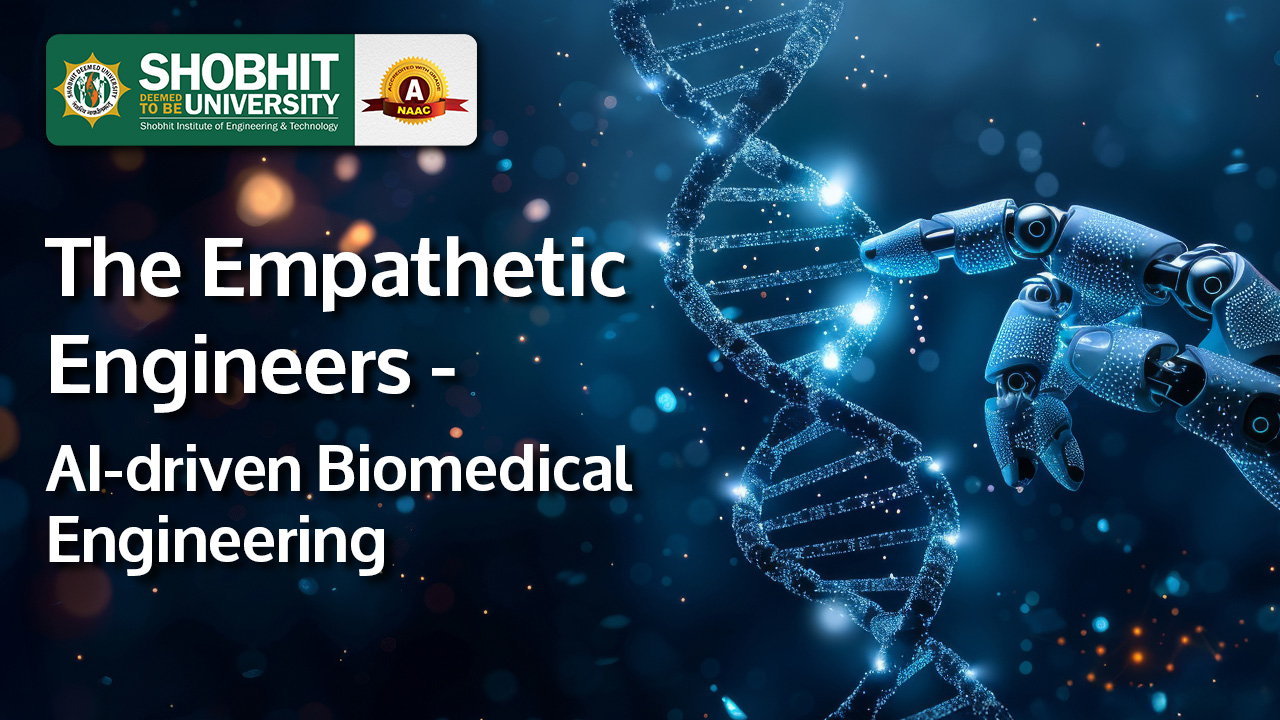
The Empathetic Engineers: AI-driven Biomedical Engineering
Artificial Intelligence (AI) and Neural Networks (NNs) are revolutionizing biomedical engineering by enabling smarter diagnostics, personalized treatments, and more efficient healthcare systems. Biomedical engineers use AI in:
1. Medical Imaging & Diagnostics
AI algorithms analyze CT, MRI, and X-ray scans to detect anomalies like tumors, fractures, or hemorrhages with high precision. Convolutional Neural Networks (CNNs) are especially effective in image classification and segmentation tasks, such as identifying cancerous cells or retinal diseases.
2. Disease Prediction & Risk Assessment
Artificial Neural Networks (ANNs) model complex relationships in patient data to predict disease onset (e.g., diabetes, cardiovascular disease). Recurrent Neural Networks (RNNs) are used for time-series data like ECG or EEG to detect arrhythmias or epileptic seizures.
3. Personalized Medicine
AI helps tailor treatment plans based on genetic, lifestyle, and clinical data. Neural networks can optimize drug dosing and predict patient-specific responses to therapies.
4. Biomedical Signal Processing
Used in analyzing physiological signals like ECG, EMG, and EEG. Neural networks filter noise, detect patterns, and classify signals for real-time monitoring and diagnosis.
5. Robotics & Prosthetics
AI powers intelligent prosthetics that adapt to user behavior. Neural networks enable real-time control of robotic limbs using brain-computer interfaces (BCIs).
6. Drug Discovery & Genomics
Deep learning models accelerate drug screening by predicting molecular interactions. AI assists in genome sequencing and identifying disease-linked genetic mutations.
AI in Healthcare: Market Growth & Adoption
Globally, the generative AI healthcare market is growing at a CAGR of 36–38%, driven by demand for precision medicine and efficient care delivery. India’s AI healthcare market is projected to reach $1.6 billion by 2025, growing at a CAGR of 40.6%. India is rapidly adopting AI in healthcare, with 57% of providers already using it—outpacing global averages. Government initiatives like the Ayushman Bharat Digital Mission and Atmanirbhar Bharat with companies like GE HealthCare are developing AI solutions “in India, for India and the world”. GE HealthCare India has developed AI-powered tools like the Cath Lab and Revolution Aspire CT to enhance diagnostic precision, especially in oncology and radiology.
AI is helping bridge the skill gap in rural areas by enabling less experienced clinicians to deliver high-quality imaging and diagnostics. The Media Disease Surveillance (MDS) system uses AI to scan digital media for early signs of infectious disease outbreaks—over 4,500 alerts have been generated so far. AI-based TB detection tools like Cough Against TB have improved community-level screening, leading to a 12–16% increase in TB case detection. The e-Sanjeevani platform integrates AI for differential diagnosis and patient data capture, supporting over 196 million consultations and aiding 12 million diagnoses. Heaps.ai, developed in India, uses AI to predict deviations in patient recovery after hospital discharge. It covers 36 chronic conditions and enables timely interventions to reduce readmissions.
Shobhit University’s Programs in Biomedical Engineering
Shobhit University offers a cutting-edge state of art B.Tech and M.Tech programs in Biomedical Engineering with specialization in “Artificial Engineering and Neural Networks” to create trained engineers and med-tech professionals in real-world AI applications like diagnostics, imaging, and risk scoring. The programs are designed in the way so as to prepare students for building neural implants, brain-computer interfaces, and medical diagnostics. A few of our alumni’s Er. Shrishti Sharma, Er. Dheeraj, Er. Lokendra Yadav, Er. Farhan, Er. Ankur Gupta are already working in GE Healthcare, Phillips, HJ Group of Hospitals (Kinshasa), Alcon Laboratories as clinical application specialists using the skills gained through our B.Tech and M.Tech Biomedical Engineering programs. For more details :-
visit www.shobhituniversity.ac.in
or contact admissions@shobhituniversity.ac.in
